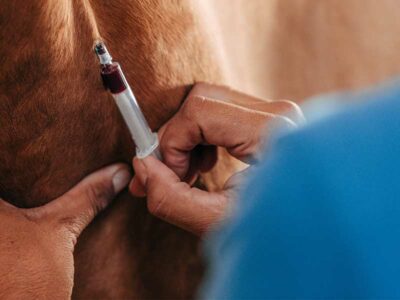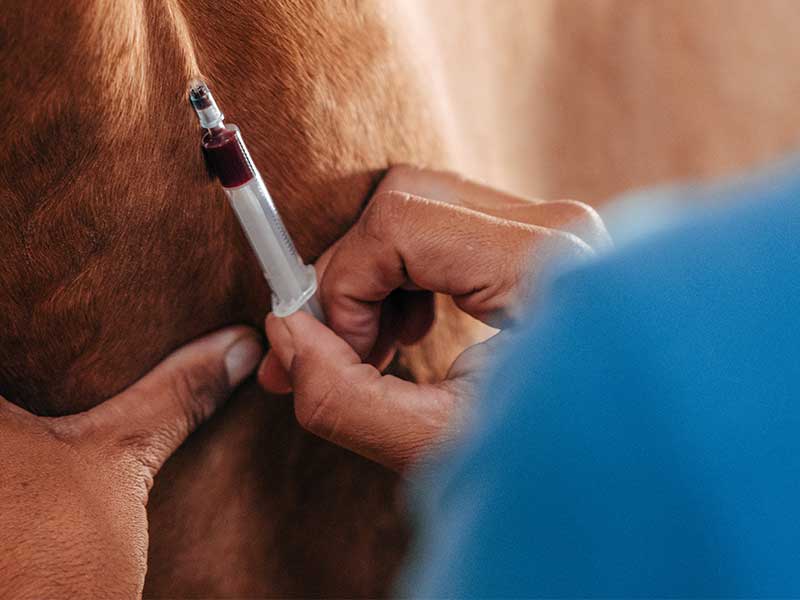
A Coggins test involves a simple blood draw.
A Coggins certificate is a document that verifies that a horse has been tested for Equine Infectious Anemia (EIA), also known as Swamp Fever. EIA is a viral disease that affects horses, donkeys, and mules and is transmitted through blood-to-blood contact or through insect vectors. While there is no cure for EIA, it can be managed through early detection and quarantine measures. A certificate will list the horse's information, as well as identifying photos.
One of the main reasons you may need a Coggins certificate is to transport your horse across state lines. Many states require a current Coggins certificate for all horses being transported within or into the state, as a way to prevent the spread of EIA. Many horse shows will require a Coggins certificate for eligibility to compete.
Another reason you may need a Coggins certificate is if you are selling or leasing your horse. A current Coggins certificate can help to establish the health status of your horse and give potential buyers or lessees peace of mind. New boarding facilities will often request a current Coggins certificate as well.
In addition to these practical reasons, a Coggins certificate can also provide peace of mind for horse owners. Knowing that your horse has been tested and is negative for EIA can help to protect both the health of your horse and the health of other horses in your care.
To obtain a Coggins certificate, your horse will need to be tested by a veterinarian or at a diagnostic laboratory. The test involves taking a small blood sample from your horse and sending it to a laboratory for analysis. It is generally recommended to test for EIA once a year, although some states may have different requirements.
In summary, a Coggins certificate is an important document for horse owners to have for a variety of reasons. It verifies that your horse has been tested for EIA, a viral disease that affects horses, and is necessary for transporting your horse across state lines or participating in public events. It can also provide peace of mind for horse owners and can be a valuable asset when selling or leasing your horse.
 A Coggins test involves a simple blood draw.
A Coggins test involves a simple blood draw.
 A Coggins test involves a simple blood draw.
A Coggins test involves a simple blood draw.
 A Coggins test involves a simple blood draw.
A Coggins test involves a simple blood draw.